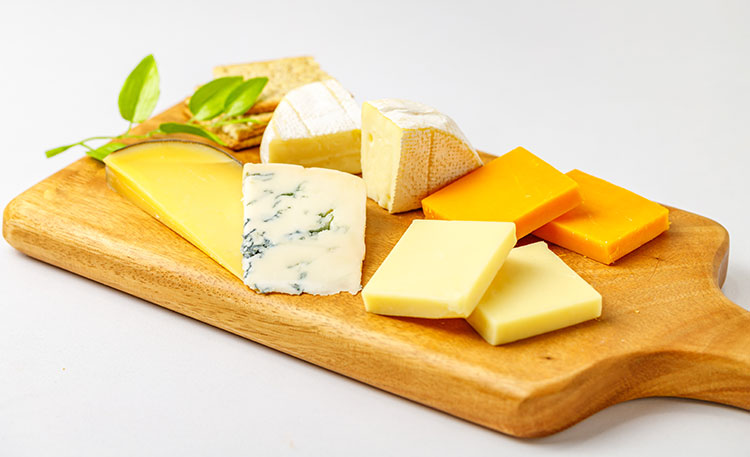
Like most foods, moderation is best, but cheese has a place at the table of healthy eating. Protein, calcium, zinc, vitamin A, and vitamin B12 are just some of the nutrients cheese provides.
All cheese is not created equal, and some varieties are better for you than others. A recent Washington Post article detailed what they consider to be the healthiest cheeses. As a big fan of cheese myself, I say, eat whatever variety you enjoy. But, if you are looking for the best of both worlds — delicious cheese and healthiness — this article offers some interesting advice.
Fresh cheese topped their list of healthfulness as it is the leanest option. This includes cheeses such as cottage cheese, feta, ricotta, and goat cheese. According to the article, cottage cheese is lower in calories and packed with protein. Ricotta has more calories but contains a lot of calcium. Fresh mozzarella has both low calories and sodium, plus it provides some probiotics that are a good for gut health.
Harder cheeses, such as Cheddar or Parmesan, are richer in flavor and have a longer shelf life. The article explained that harder cheeses have more calcium and less lactose because whey is removed during processing. Although they have more sodium, they also have less fat.
Blue cheese is higher in calories, saturated fat, and total fat, but it is one of the highest cheeses in calcium.
Softer cheeses fall farther down the article’s healthy list due to higher saturated fat content. Likewise, processed cheeses are less ideal because they go through more steps to lengthen their shelf life.
There is a cheese variety for everyone’s taste buds, and there are certain cheeses that can have specific health benefits. I’ll leave you with this list from the article of cheeses that can be used to address particular health needs. Please check with your doctor or a dietician to address any specific nutritional goals.
To reduce sodium: Swiss, goat, Emmental, or Wensleydale
To boost calcium: Manchego, Emmental, Parmesan, Romano, Gruyere, or Swiss
To increase protein: cottage cheese, ricotta, Romano, or Parmesan
To boost gut health: Raw, unpasteurized cheddar, feta, Gouda, Edam, caciocavallo, Emmental, or Gruyere
To cope with lactose sensitivity: hard cheeses such as cheddar, Parmesan, Swiss, asiago, manchego, or Pecorino Romano
To be safe during pregnancy: pasteurized cheeses.

The author is an associate editor and covers animal health, dairy housing and equipment, and nutrient management. She grew up on a dairy farm near Plymouth, Wis., and previously served as a University of Wisconsin agricultural extension agent. She received a master’s degree from North Carolina State University and a bachelor’s from University of Wisconsin-Madison.









